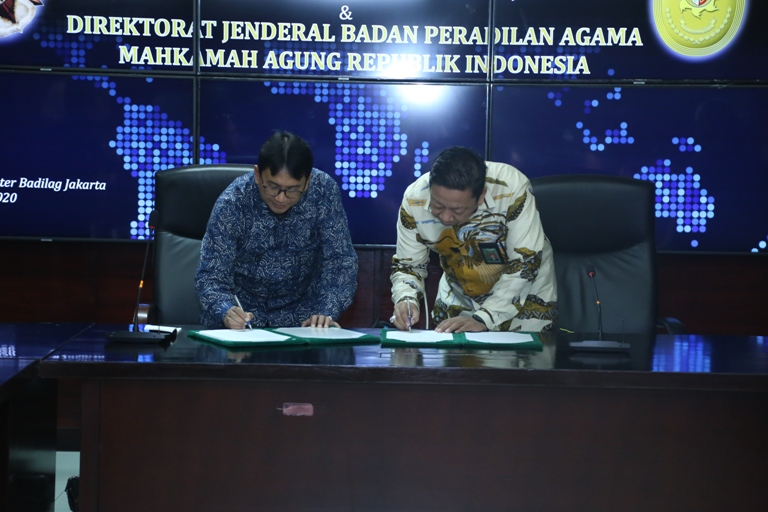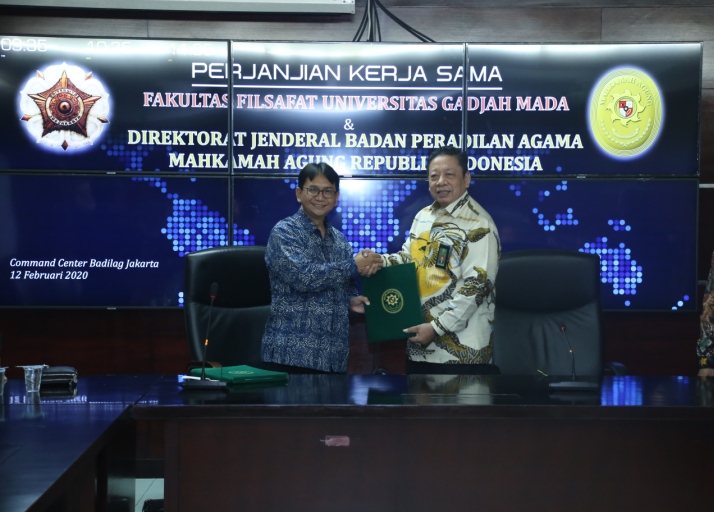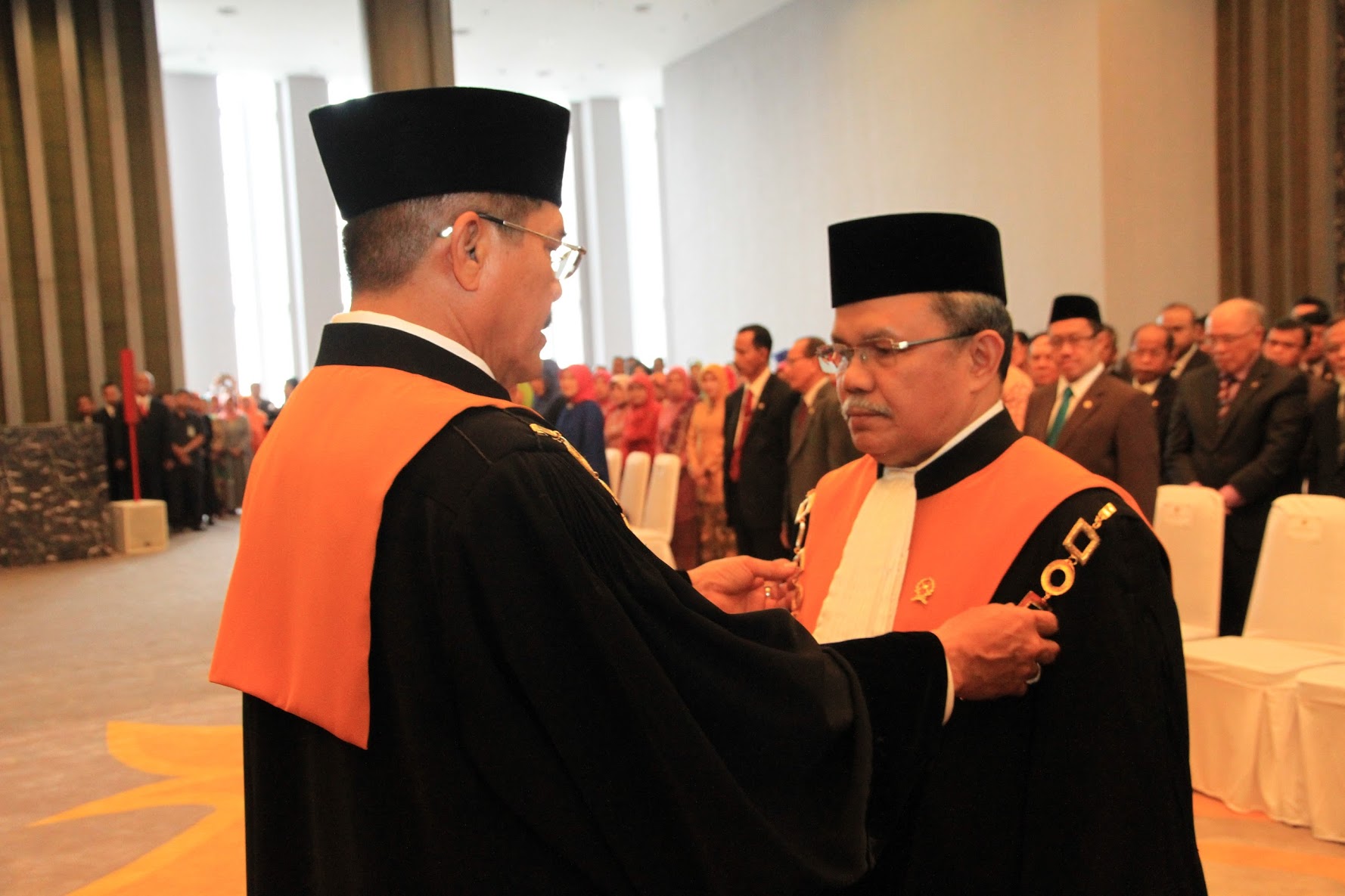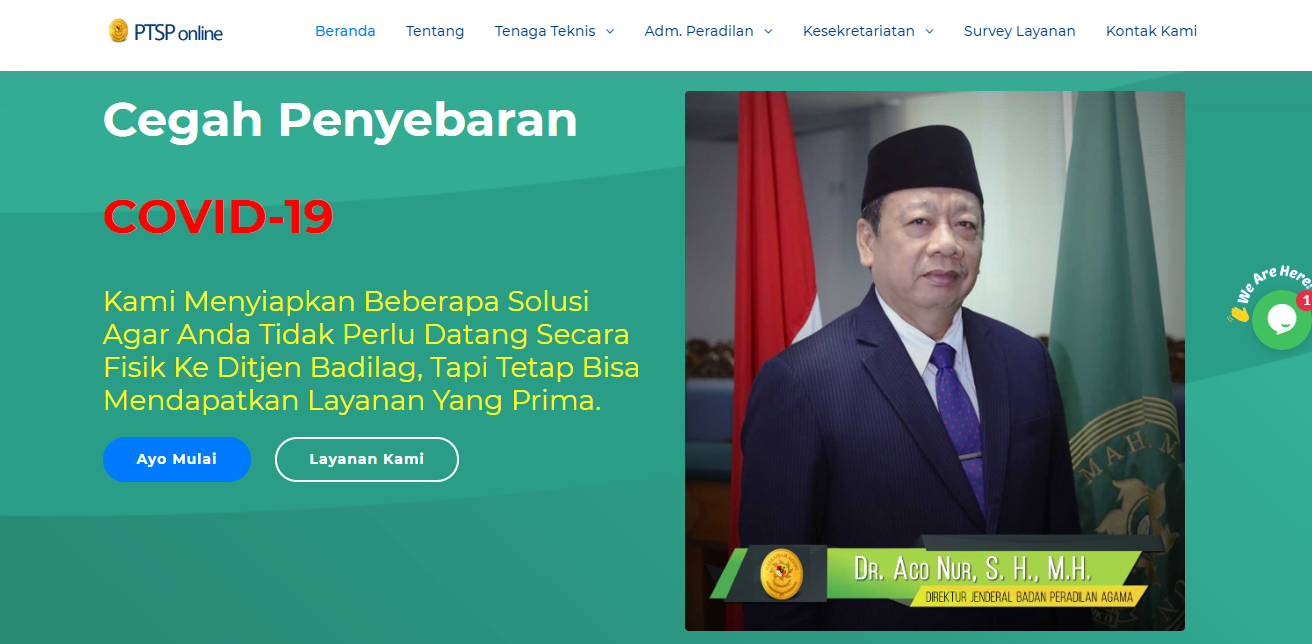
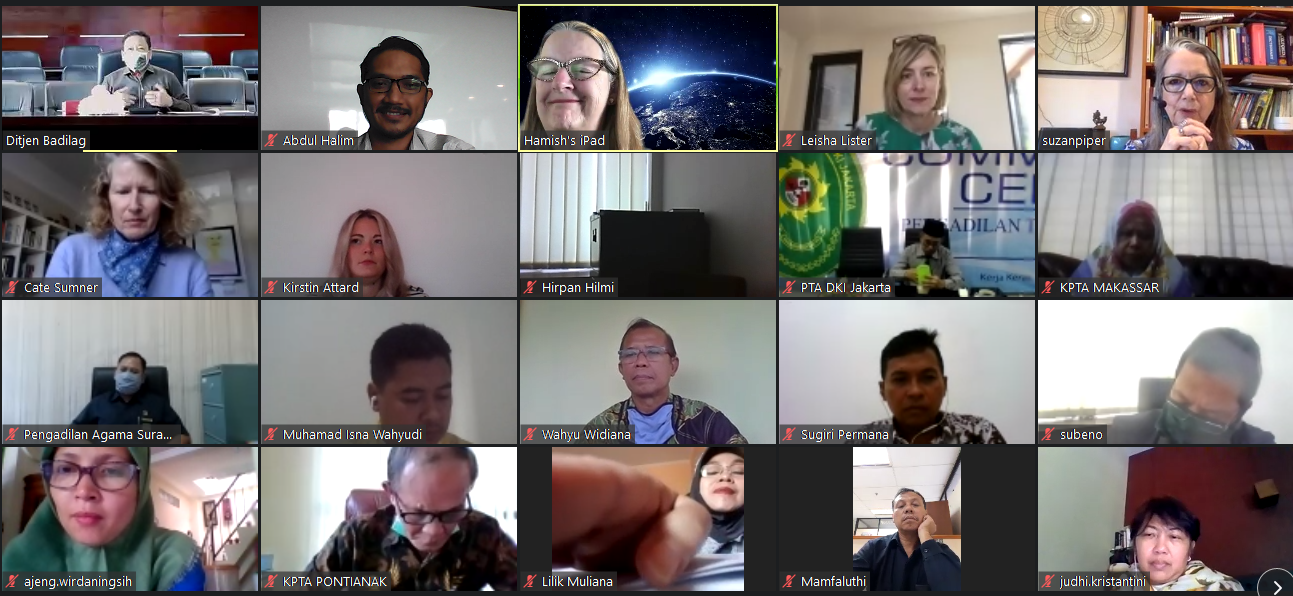
Directorate General of the Religious Courts (Badilag) in cooperation with the Family Court of Australia held a limited discussion trough Zoom, on Thursday, March 16th, 2020. The discussion took a theme about how the court deals with the crisis caused by the transmission of corona virus in many parts of the world and has taken a large number of people’s lives and also has drastically changed the way how human interaction is going.
Courts are not free from the effect brought on by this global pandemic. As an institution of law enforcement, especially the domestic courts, religious courts facing a pretty difficult dilemma. Since the judicial process is a fundamental need of a society, the court sentence will guarantee a person’s right that has been violated in daily life. In the middle of this uncertain situation, the domestic dispute is getting susceptive. On the other side, COVID 19 pandemic situation requires a wide restrict social interaction, compliance with handling, and preventing standards that have been set by the government. In turn, it also affects the judiciary process that requires in-person interaction between the society and the judiciary officers in the courtroom.
The discussion was headed by the Director-General of Badilag, Dr. Aco Nur., S.H.,M.H. assisted by the Secretary of Badilag, Drs. Arief Hidayat, S.H., M.M, the Director of Development Technical Personnel, Dr. Candra Boy Seroza, S.Ag. M.Ag, as well as the Director of the Development of Administration, Dr. Nur Djannah Syaf, S.H., M.H, and all of the echelon 3 of Badilag. As from the Family Court of Australia, they are Justice Judy Ryan, Kirsten Attard, Cate Sumner, Leisha Lister, and Suzane Piper.
Not only from Badilag and Family Court of Australia, the discussion was also attended by the Chiefs of Central Jakarta Religious High Court, Pontianak Religious High Court, Makassar Religious High Court, East Jakarta Religious Court, Surabaya Religious Court, Madiun Religious Court and vice of Rangkasbitung Religious Court and also Mr Wahyu Widiana from Australia Indonesia Partnership for Justice (AIPJ) who facilitated the discussion.
The discussion took two hours and led the exchange of information and experiences between the courts from those two different countries about how to manage the judicial process during the COVID-19 pandemic.
The importance of Obeying the COVID 19 Protocol
In the first session, the Director-General talked about how COVID 19 has been spreading out crazily in Indonesia and how The Supreme Court had set the policy to deal with it. The biggest obstacle is, the enormous number of cases are being processed during the COVID 19 situation, especially in Religious Courts. Therefore, it requires a systemic solution and approach to avoid the chaos caused by the piling up of unfinished cases that may hamper community legal rights. Moreover, there are various characteristics and different population density in each province in Indonesia, so the solution and approach must be fit to each region. “The supreme court has committed to follow the policy that had been set by Indonesia Government,” said the Director-General.
The DJ explained about the policy of the Indonesia Supreme Court through SEMA No. 1/2020 about the Guidance of the Duty Implementation during the COVID 19 Transmission Prevention Period in the Supreme Court and all the Courts Underneath it. The regulation instructs all the courts and the high courts to adjust the work system with the policy from the Ministry of PANRB, where all judiciary officers and another court officers can run the service away from home (Work from Home).
Further, the regulation explained that work from home is kind of running the services including court administration through e-Court. Meanwhile, the judiciary process will be run by e-Litigation, virtual coordination and meetings, and any other services. For the cases with a certain period of investigation, judges can procrastinate its investigation although exceeding the period. The judges can instruct the court clerk to note in the minutes of trial that the procrastination is caused by force majeure.
For the cases that need rapid completion, the session must be restricted from the visitors. The panel of judges can decide how many people may attend the courtroom, implement the social distancing for each visitor, check visitor’s body temperature before entering the courtroom, and prohibit physical contact such as handshaking.
The Court Must Go On
Justice Judy Ryan, a senior judge from the Family Court of Australia and also a coordinator of foreign affairs told about the global pandemic and how the crisis had affected the susceptible society, especially women and children.
Firstly, she conveyed that the court needs to keep running the service, due to protecting susceptible society’s rights. Globally, women, children, and the elder people will be strongly affected by COVID 19, so the number of lawsuits registered in the court will be keep increasing. It is important for the court to maintain a conducive working environment for the judiciary officers and any other officers. The court must become a role model and keep good communication between courts both domestically and abroad to share any experience. Not only that, but it is also important to set the priority scale on how to handle the cases.
International Commission of Jurists (ICJ) claimed the courts need a modest application to help to protect people from domestic harshness, harassment, and abandonment that may increase during the COVID 19 disease. For example in Hubei Province, where Wuhan is, the violence in a household has been growing three times, meanwhile, in Singapore, the violence has been growing about 33%, both in France and Cyprus is about 30% and also in Argentina is about 25%. The crisis took a family into the worst condition caused by loss of a job, a decrease income, gather in a limited place at the same time, and worsen both mentally and physically.
Secondly, the information about the process of the cases and the judicial process must be able to be accessed via the internet or line. The court website must be maximized to provide information for the society. This solution can lessen the procedure of direct registration and optimized the call center service. E-Court, for example, can be the solution as the legal aid for the needs.
The condition pushes us to be more adaptive to technology in working as well as in communicating. On the other hand, the ability of each staff is not the same. One staff may be more adaptive than the other. Judges and any other technical personnel are demanded to be also familiar with the technology by online training and quick technology project. This technology will give a huge benefit to society reaching the judiciary process such as information about the court.
Thirdly, the spread of COVID 19 affected the number of cases that may be registered after the pandemic period, which must be anticipated by the court. Along with the large number of cases registered, the demand for a fee waiver may also increase. Judiciary officers must all set to support the issue, especially the rising fee calculation of fee waived to give the optimum service to the society.
Last but not least, the judiciary practice must be modified in such a way to fulfill both the safety standards that have been set by the government and procedural law principals. “We need to formulate today in order to set the plan for the future, we need to learn from any other countries to exchange the information to handle this situation, so the technology will dominate the process,” Judy Ryan conveyed as the end of the speech.
The discussion continued to question and answer sessions. Some courts shared their experiences in facing the pandemic at one blow by asking some questions that keep the discussion running interestingly. (ahb/dh)

